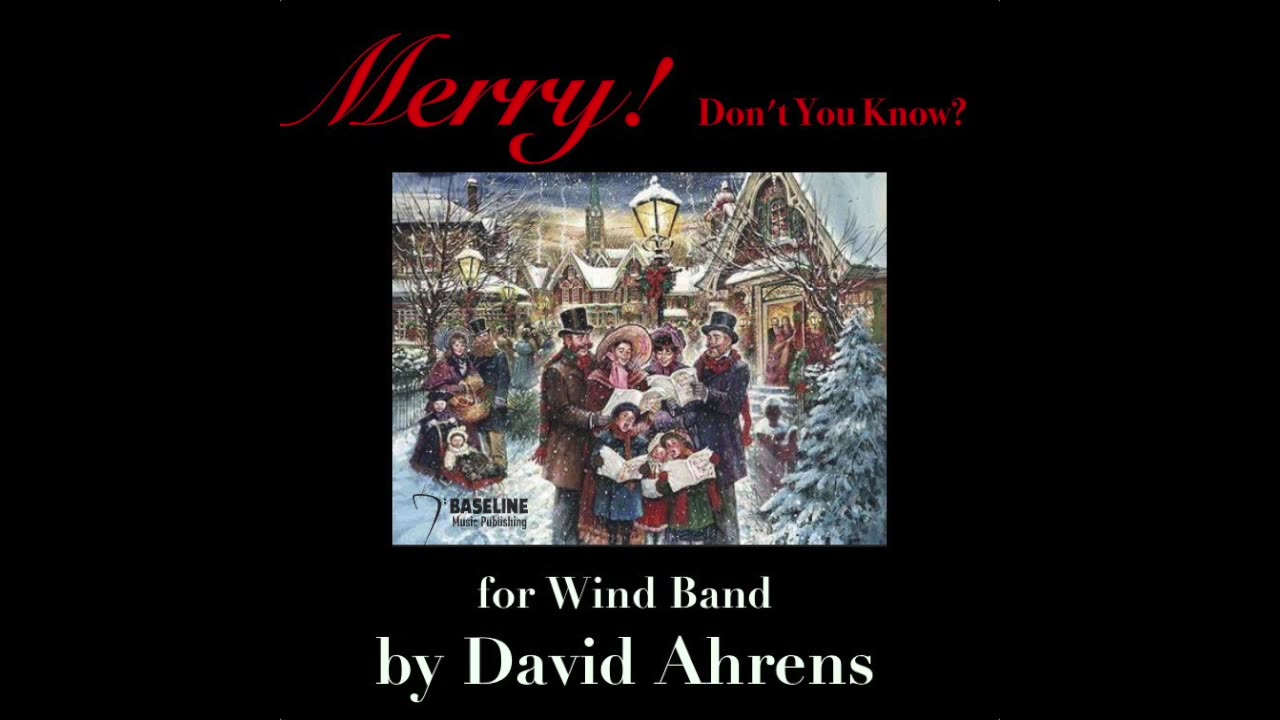Premium Only Content

"Merry! Don't You Know?", by David Ahrens
"Merry! Don't You Know?" for Wind Band, by David Ahrens.
Grade 3
This and all of David Ahrens' compositions are available for sale at http://www.sounded.us/baseline/shop/
Please support music in our schools!
Please support independent composers!
“God Rest You Merry, Gentlemen” is a traditional English Christmas carol dating to the mid 17th Century. It was referenced by Charles Dickens in his 1843 novella “A Christmas Carol” but with the lyric:
“God bless you, Merry Gentleman!
May nothing you dismay!”
The phrase “God rest you merry” historically meant “may God grant you peace and happiness”. “Rest you merry” was used both in Shakespeare’s “As You Like It” and “Romeo and Juliet”. Over time, there has been confusion over this title due to changes in common language usage. The word ‘merry’ is an adverb of rest and not an adjective of Gentlemen.
“Pat-A-Pan” is a traditional Burgundian French Christmas carol written by Bernard de La Monnoye and published in 1720. The text calls for the bringing of a drum and flute to play for newborn Jesus Christ in worship. The title is onomatopoeic for the sound of a drum, as is the additional lyric “tu-re-lu-re-lu” for the sound of a flute.
“Yigdal” is a Jewish hymn and prayer that is a poetic adaptation of Maimonides’ 13 principles of faith. The text is attributed to 14th century poet Daniel ben Judah. The melody dates to the 17th century or earlier. It is traditionally sung for morning prayer and as the conclusion of Shabbat evening services. Upon hearing Yigdal, English Methodist Thomas Olivers adapted this melody for use in his Christian hymn “The God of Abraham Praise”, which is a paraphrase of the ben Judah doxology, and was first published in 1772.
“Merry! Don’t You Know?” is a playful melding of these sacred songs, acting as a reminder that Christmas is a time to be merry and joyful as we celebrate the nature, power, and love of God.
-
 5:43:44
5:43:44
Scammer Payback
2 days agoCalling Scammers Live
157K25 -
 18:38
18:38
VSiNLive
2 days agoProfessional Gambler Steve Fezzik LOVES this UNDERVALUED Point Spread!
117K17 -
 LIVE
LIVE
Right Side Broadcasting Network
10 days agoLIVE REPLAY: President Donald J. Trump Keynotes TPUSA’s AmFest 2024 Conference - 12/22/24
4,529 watching -
 4:31
4:31
CoachTY
1 day ago $1.09 earnedCOINBASE AND DESCI !!!!
164K11 -
 10:02
10:02
MichaelBisping
1 day agoBISPING: "Was FURY ROBBED?!" | Oleksandr Usyk vs Tyson Fury 2 INSTANT REACTION
90.2K13 -
 8:08
8:08
Guns & Gadgets 2nd Amendment News
2 days ago16 States Join Forces To Sue Firearm Manufacturers Out of Business - 1st Target = GLOCK
114K88 -
 10:17
10:17
Dermatologist Dr. Dustin Portela
2 days ago $1.21 earnedOlay Cleansing Melts: Dermatologist's Honest Review
151K14 -
 1:02:20
1:02:20
Trumpet Daily
2 days ago $12.42 earnedObama’s Fake World Comes Crashing Down - Trumpet Daily | Dec. 20, 2024
107K68 -
 6:29
6:29
BIG NEM
1 day agoCultivating God Mode: Ancient Taoist NoFap Practices
78.9K20 -
 30:53
30:53
Uncommon Sense In Current Times
2 days ago $0.86 earned"Pardon or Peril? How Biden’s Clemency Actions Could Backfire"
90.8K10